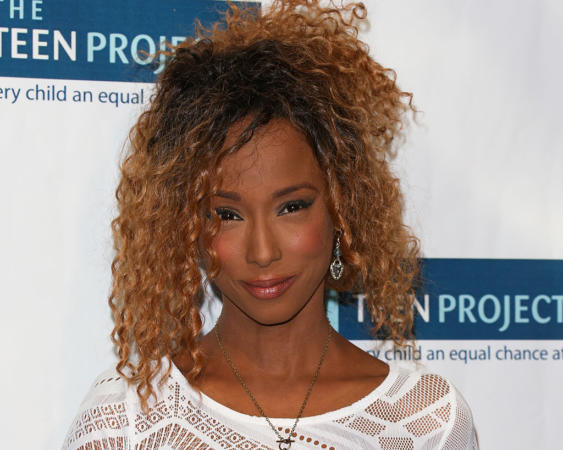Boy Meets World actress Trina McGee is continuing to open up about the racist experiences she endured while working on the hit ’90s show. While everything appeared to be all smiles in front of the cameras, her alleged treatment behind the scenes was a different story.
The latest is an incident in which McGee revealed that while portraying Angela Moore, one of the show’s few characters of color, she was instructed by a showrunner to “turn down” her Blackness, Insider reports.
McGee joined former co-stars Danielle Fishel (Topanga), Rider Strong (Shawn) and Will Friedle (Eric) on their podcast, Pod Meets World, to talk about her complicated time on the show.
Strong, whose character played McGee’s love interest on the show, recalled questioning why Boy Meets World never addressed McGee’s Blackness, and he even joked that the 53-year-old had to basically perform in white face throughout her tenure on the show. McGee agreed, explaining that coming from Black ’90s sitcoms — she appeared on shows like A Different World, The Sinbad Show, Martin and Family Matters prior to Boy Meets World — she had what she refers to as a “Black meter,” which she would turn up or down depending on direction. While at Boy Meets World, she turned her Black meter down very low, and even changed the way she spoke to come off less Black.
“On Boy Meets World, my Black meter was probably down to about a two,” the 53-year-old actress explained.
She went on to share that her Black meter once slipped to “about a nine” while filming an episode centered on her character during the show’s seventh season, and she was quickly told to tone it down by Boy Meets World showrunner Michael Jacobs.
McGee added, “Micheal comes over to me and his note was, ‘Hey Trina, just turn down the Telma Hopkins about eight notches.'”
For those unfamiliar, Telma Hopkins is the actress who played Aunt Rachel on the hit sitcom Family Matters from 1989 to 1997.
McGee laughed as she added that she “knew exactly what he was talking about,” and said that her costars were lucky they didn’t have to deal with the nuances of code-switching that she faced due to being Black on set.
“Sometimes, it was too much,” she said.
The podcast episode comes after both Fishel and Friedle apologized for mistreating McGee while filming the show. McGee accepted both apologies, and noted that she spoke to both of her former co-stars privately to mend fences.

